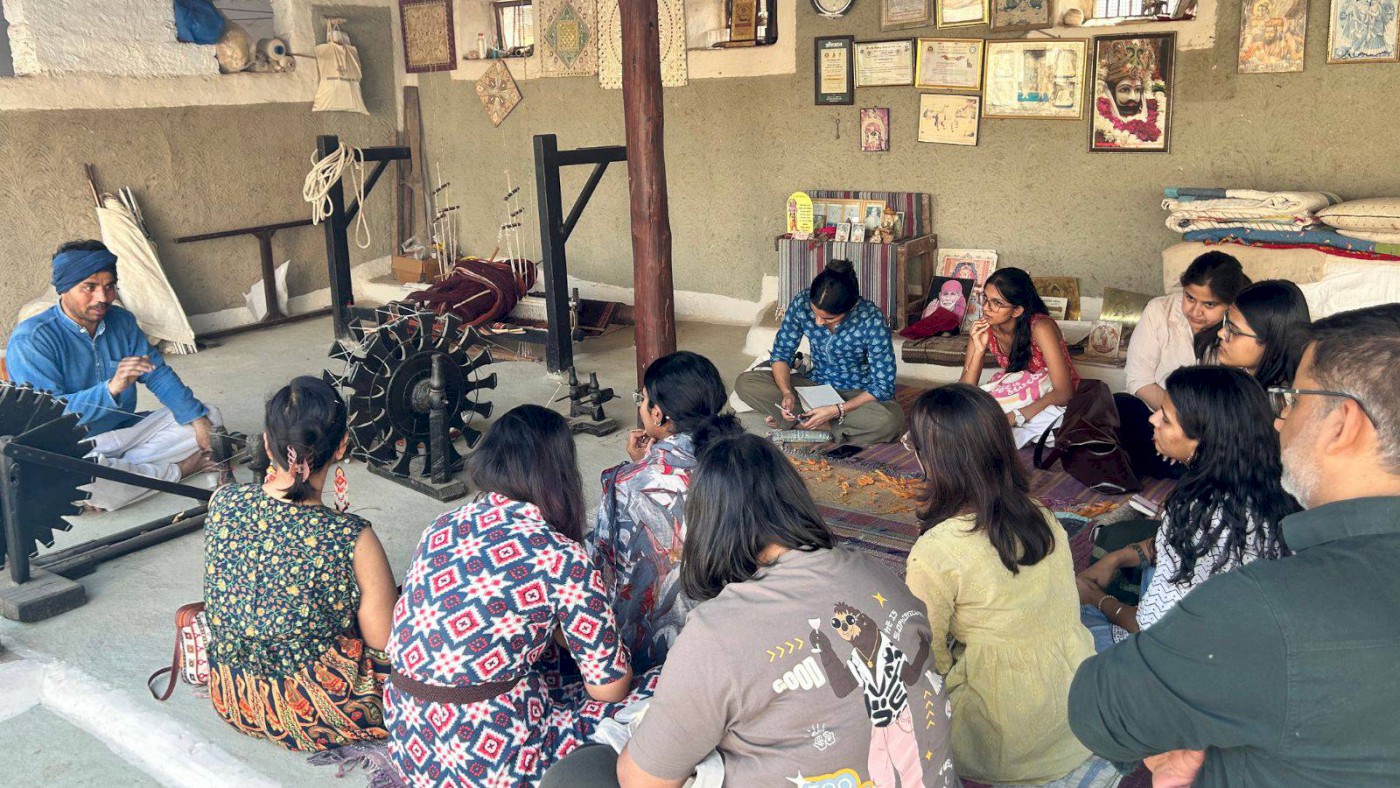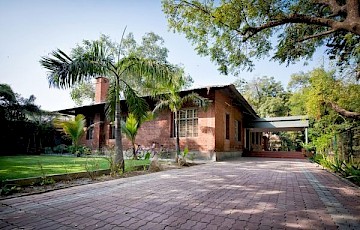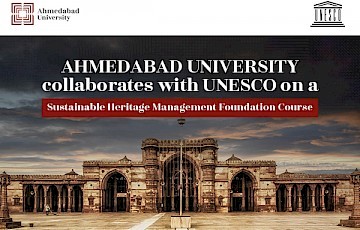5 May 2025
Understanding Indigenous Knowledge Systems with Field Immersions

Students from the Centre of Heritage Management (CHM) of Ahmedabad University critically examined how indigenous knowledge systems adapt to evolving environmental, social, and economic landscapes through their week-long field study in Kutch, Gujarat.
Conducted as part of the Indigenous Knowledge Systems course, students of the cohort of 2024 explored the region's rich cultural heritage embedded in community, ecology, and local traditions.
The immersion comprised interactions with Ghatit Laheru, a development professional and Director Khamir, an organisation dedicated to uplifting traditional crafts in Kutch. Sushma Iyengar, President Khamir and founder of Kutch Mahilia Vikas Sangathan while explaining the region's rich and varied heritage emphasised the interconnectedness of land, people, and culture.
As part of the excursion, students also explored Kala Cotton weaving, a revival project led by Khamir to restore indigenous cotton species and promote sustainable practices. They engaged with local weaver Dineshbhai, gaining hands-on experience in the intricate weaving process. Visits to the Hunnarshala Foundation and Ajrakhpur further enriched their understanding of traditional block printing and vernacular construction techniques. Interactions with local artisans, including Ajrakh craftsman master Dr Ismail Khatri, brought to fore the economic challenges faced by traditional crafts in the modern market. The immersion also included discussions on music traditions of Kutch, ecosystem of Fakirani Jats, Kharai camels and mangroves, threats to Banni Grasslands - Asia's largest grasslands, local governance, initiatives promoting sustainable development and gender empowerment.
Field excursions such as these are an integral aspect of Ahmedabad University's pedagogy, where theoretical learning is complemented by real-world experiences – a platform where a geographical location transforms into a classroom, defying conventional norms. This journey provided students with profound insights into the vital role of indigenous knowledge systems in fostering sustainability, cultural preservation, and community resilience amidst contemporary challenges.



